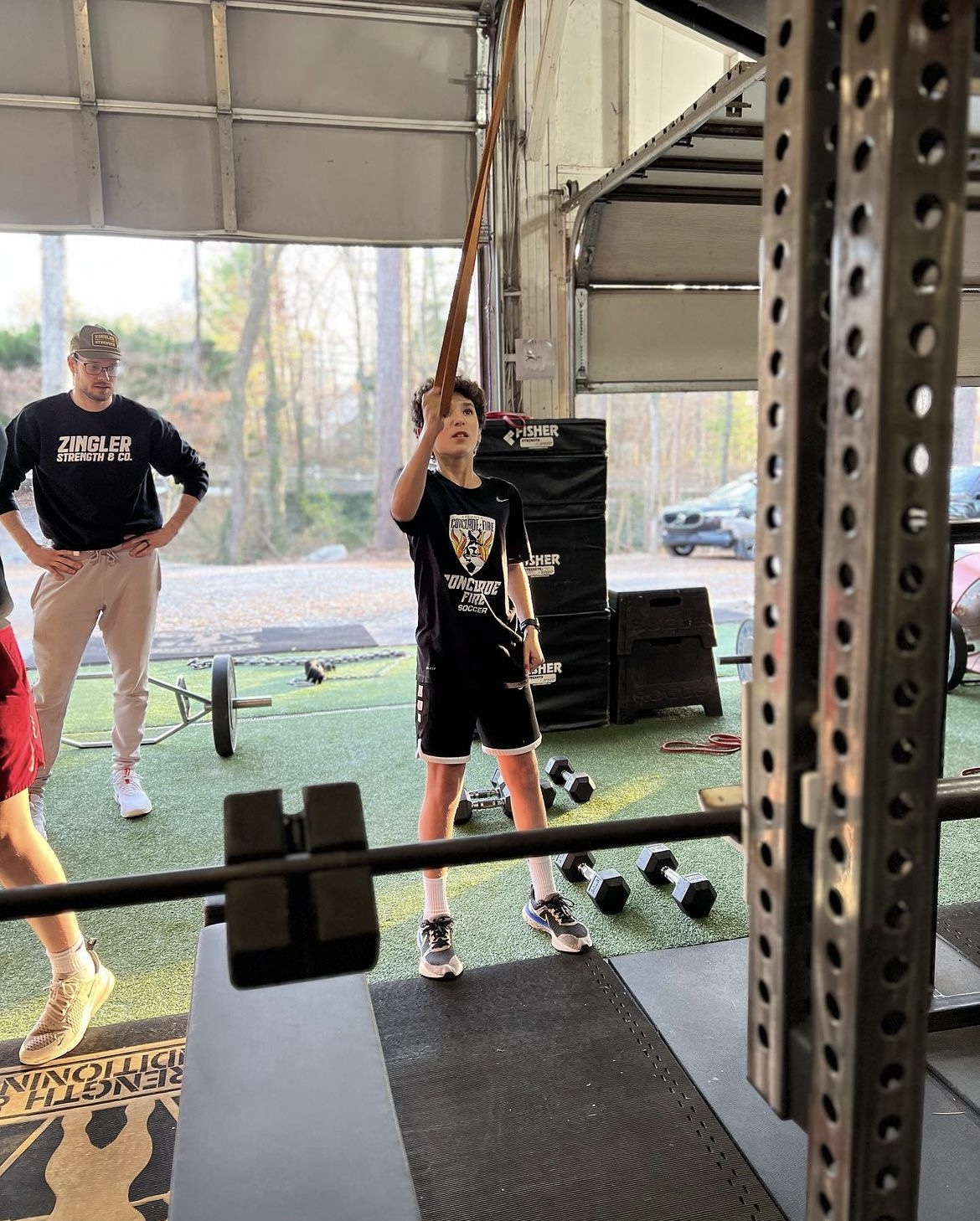Note: “Stunting growth” or “Bulking Up” isn’t on the list.
“The goal of adolescent strength training isn’t to ‘bulk up’.
The goals are 5-fold.
Improve Relative Strength
Improve Neural Adaptations
Improve Work Capacity
Improve Confidence
Positively Associate with Training
Start kids early.
Play the long game.”
-Ray Zingler on X
The reason I write every day is because I am starving to educate and inform parents for the sole purpose of helping their children maximize their athletic experiences.
While there is little hope for the “it’ll stunt their growth” crowd, (there is oceanfront property in Arizona for sale, too). It’s understandable that many parents might be apprehensive about how and when to start their child in a program.
My goal is share the critical benefits and goals of training at a (very) young age.
1. Improve Relative Strength. Strength training isn’t about rounded back deadlifts or bench maxes. It’s about improving a child’s relative strength level, relative to their own current strength level. This can be done with their bodyweight. When kids get relatively stronger, all things athleticism improve because strength is the foundation for EVERYTHING athletic.
2. Improve Neural Adaptations. “Young kids should be doing ‘speed & agility’ while strength training is for the older kids.” There is a lot of bad advice out, there is little advice that is worse than that, though. Strength training (again, relatively speaking) improves neural adaptations. Think “nervous system upgrades” or, “more coordination from the brain to muscles allowing muscles to operate quickly and more efficiently.” In quite literal terms, strength training is the BEST speed training for youth athletes.
3. Improve Work Capacity. Work capacity is simply defined as the ability to do work. Strength training enlarges the size of the “work reservoir” for kids. The kids who can do more (sport & life) work, for sustained duration of time are A) More effective & B) Less injury prone.
4. Improve Confidence. There is no better reason to get a kid involved in strength training than this reason right here. Forget the “sports” benefits and pay attention to the global benefits that come from getting stronger and feeling generally better about themselves. Confidence is king.
5. Positively Associate with Training. Kids, as you’re probably aware, are very impressionable. They are like sponges who can and will soak up the good, the bad, and the ugly. Is there a better outlet to positively “tie their identities to” at a young age than the activity that will keep them alive the longest? I’m not very smart, but I don’t think a better option exists.



